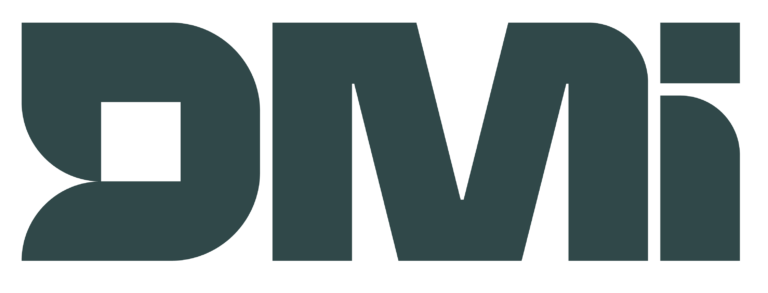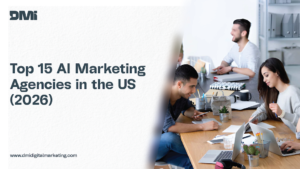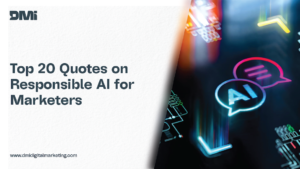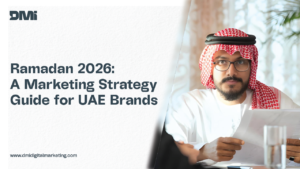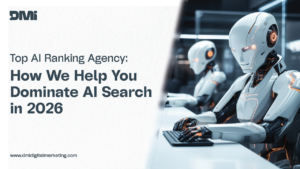Jump to Section
ToggleSearch engine optimization (SEO) is experiencing one of its most significant paradigm shifts since the introduction of RankBrain and BERT. For decades, keyword research has been the backbone of SEO strategies — identifying the exact words people use to find products, services, and information.
But with the rise of AI-driven search, semantic understanding, and entity-based indexing, marketers are asking a new question:
Are we moving from keyword research to entity optimization?
Let’s unpack what’s really happening — and what this shift means for SEO strategy in 2025 and beyond.
The Old Guard: Keyword Research as the Heart of SEO
For most of SEO’s history, success depended on one solid process: finding and optimizing your content for the right keywords.
Marketers would:
- Research popular search terms using tools like Ahrefs, SEMrush, or Google Keyword Planner.
- Create content that strategically includes those keywords in titles, meta descriptions, headers, and copy.
- Track rankings and adjust based on performance.
This system worked because search engines once relied heavily on keyword matching — connecting search queries to web pages with the exact words.
For instance, if users searched for “digital marketing agencies for black owned businesses in the US,” Google’s algorithm would prioritize pages with that exact phrase in strategic locations. But over time, this approach became less effective (not entirely ineffective) as Google’s algorithms matured to understand intent rather than literal text.
The AI Revolution: Search Engines That Understand Meaning
When you enter the world of AI–particularly machine learning, natural language processing (NLP), and large language models (LLMs)– these technologies enable search engines to interpret what people mean rather than what they type.
Key innovations driving this transformation include the following:
Search: Major Evolutions
2015 — RankBrain
Machine learning to interpret new or vague queries.
2018 — BERT
Context-aware understanding of phrasing and intent.
2021 — MUM
Multimodal, multilingual model linking text + image.
2023 – Till Now — Generative AI in Search
AI summaries synthesize answers directly in results.
Together, these updates pushed SEO toward semantic search, where Google maps relationships between concepts — or entities — not just words.
What Exactly Is an “Entity” in SEO?
An entity is any uniquely identifiable “thing” or concept — a person, brand, place, product, event, or idea that search engines recognize and relate to others.
For example:
- Apple Inc. (organization entity)
- iPhone 17 (service/product entity)
- San Francisco (location entity)
- Digital Marketing (concept entity)
Entity optimization involves making sure search engines clearly understand:
- Who you are (brand or person)
- What you do (product/service)
- Where you’re relevant (location or niche)
- Why you’re credible (expertise, authority, trust)
This approach helps Google and AI systems connect your brand to related searches — even if users don’t use the exact same keywords.
For example, if your website is optimized for the entity “eco-friendly coffee brand,” you might rank for a wide range of semantically related searches such as:
“sustainable coffee beans”
“zero waste coffee brands”
“environmentally conscious roasters”
That’s the power of entity optimization: it transcends literal keywords and builds topical authority.
Why AI SEO Is Moving Toward Entities
The Rise of Generative Search Tools
Generative search tools (like Google SGE, ChatGPT Browse, or Perplexity) don’t rely on simple keyword matching. They scan the web for semantic meaning, topic authority, and entity relationships.
Suppose your content clearly signals what your entity is and how it connects to others (through structured data, schema markup, and apparent topical depth). In that case, it’s more likely to appear in AI-generated summaries and answers.
The Rise of Zero-Click Results
A 2025 study by SEOptimizers reveals that 60% of global Google searches result in zero-click searches. That means AI-driven snippets and summaries are providing users with instant answers.
In this environment, being recognized as a trusted entity within those answers is far more valuable than simply ranking for one keyword.
You don’t need users to type “best home care agency in Jackson, MI” — Google and AI assistants already know which entities represent that concept.
Read more on Zero-Click click searches here.
Semantic Search and Knowledge Graphs
Google’s Knowledge Graph, launched in 2012, created a massive database of interconnected entities and attributes. Every time a brand earns citations, reviews, or backlinks, it strengthens its graph connection.
AI-enhanced search builds on that infrastructure — meaning entity prominence and relationship strength now influence rankings more than keyword density ever did.
Is Keyword Research Dead? Absolutely Not — It’s Evolving.
Let’s make this clear: keyword research isn’t dead. It’s evolving into something richer and more strategic.
Here’s how:
| Traditional Keyword SEO | Modern AI SEO |
| Optimize single pages for each keyword | Build content ecosystems around topics and entities |
| Focus on high-volume keywords | Focus on search intent clusters |
| Prioritize exact-match phrases | Use semantic variations and context |
| Rely primarily on ranking reports | Evaluate entity visibility and topic authority |
Instead of abandoning keyword research, AI SEO experts now integrate it into a semantic strategy — clustering related keywords under a single entity umbrella.
For example, instead of targeting “AI SEO tools,” “AI for SEO,” and “SEO automation” separately, an entity-focused approach builds one authoritative content hub that covers all aspects of AI-powered SEO.
How to Implement Entity Optimization in Your SEO Strategy
Step 1: Identify Your Core Entities
Start by defining what your brand is and represents. Ask:
Who are we? (Brand or person entity)
What do we do? (Product, service, industry)
Where do we operate? (Location)
What expertise backs our authority? (Awards, credentials, citations)
Step 2: Use Structured Data (Schema Markup)
Structured data helps AI systems understand relationships between your content elements.
Examples:
Organization schema for your business info.
Service schema for your offerings.
Person schema for experts on your site.
FAQ and HowTo schema for knowledge-rich content.
Step 3: Build Topic Clusters Around Entities
Create content clusters that connect back to a pillar page. For instance:
- Pillar: “AI SEO Strategies for Small Teams”
- Cluster articles: “Entity Optimization Explained”, “AI Tools for SEO Audits”, “Semantic SEO vs Keyword SEO”
Each cluster reinforces the same entity through internal linking and topical coverage.
Step 4: Earn Entity Recognition
Google confirms entities based on multiple consistent signals — not just content.
To strengthen recognition:
- Ensure consistent NAP (Name, Address, Phone)data across platforms.
- Get listed on relevant directories and citation networks.
- Earn mentions and backlinks from authoritative sources.
- Encourage brand searches (when people directly search your name or brand term).
Step 5: Track Entity-Level Performance
Instead of just monitoring keyword positions, measure:
- Impressions in AI-generated snippets (SGE or Bing Copilot)
- Brand mentions and unlinked citations
- Knowledge Graph inclusion (via Google’s Knowledge Panel)
- Topic coverage depth using NLP tools like InLinks or SurferSEO
The Hybrid Future: Keyword + Entity = AI-Ready SEO
The next phase of SEO isn’t “keyword versus entity.” It’s keyword + entity synergy.
Here’s what the winning formula looks like:
- Use keyword research to understand what your audience asks for and how they phrase it.
- Use entity optimization to ensure Google knows who you are. And why are you credible? In that space.
- Build contextual authority through interlinked topics, citations, and structured data.
In other words, keyword research identifies the audience, while entity optimization establishes brand authority to dominate AI-driven results.
Key Takeaways
AI is not killing SEO — it’s forcing it to mature.
We’re shifting from tactical word matching to strategic meaning-building.
If you’re still treating SEO as a list of keywords, you’re missing the bigger picture:
- Google and AI search engines want understanding, not repetition.
- Authority is built through relationships, not just rankings.
- The future belongs to those who optimize for meaning, context, and entities.
So, is AI SEO replacing keyword research with entity optimization?
Not replacing — but redefining.
The best SEO professionals in 2025 will master both worlds: the science of intent-driven keyword strategy and the art of entity-based authority building.
Frequently Asked Questions (FAQs)
What is the difference between keyword optimization and entity optimization?
- Keyword optimization focuses on specific search terms users type into Google.
- Entity optimization focuses on broader concepts and relationships that search engines recognize, such as your brand, service type, or expertise.
Entity optimization ensures Google understands your content, even if users phrase queries differently.
How do I know if my website has recognized entities?
Search your brand or service on Google.
If you see a Knowledge Panel, business profile, or structured snippets referencing your organization, you’re already recognized as an entity.
You can also use tools like Kalicube Pro, InLinks, or Google’s NLP API to analyze entity mentions.
Should I stop using keywords in my content?
No. Keywords still matter — but context matters more.
You should:
- Use natural language rather than forced repetitions.
- Include synonyms, variations, and related concepts.
- Focus on intent (informational, navigational, or transactional).
Keywords help search engines connect user intent to your entities.
How does AI SEO affect small businesses?
AI SEO levels the playing field. Small teams can compete by creating semantically rich, localized, and authoritative content around their entities — without massive backlink budgets.
Tools like ChatGPT, SurferSEO, and MarketMuse now make entity-based content creation more accessible than ever.
What are the top AI tools for entity optimization?
- InLinks – maps entities and topic clusters.
- MarketMuse – uses AI to optimize content for semantic coverage.
- Frase.io – builds topic briefs and FAQ-rich outlines.
- Kalicube Pro – monitors Knowledge Graph presenceeeeeee.
- NeuralText or WriterZen – combines keyword and entity intelligence.
Will entity optimization replace backlinks as a ranking factor?
Not entirely.
Backlinks remain powerful, but entity authority is becoming a parallel indicator of trust.
When multiple sources reference your brand or content in connection with a topic, AI interprets you as an authoritative entity — even without direct links.
What does “entity-first SEO” look like in practice?
Entity-first SEO begins with understanding what your brand represents and structuring your content ecosystem accordingly.
It combines:
- Semantic-rich copy
- Schema markup
- Strong interlinking
- Reputation signals (reviews, mentions, citations)
The goal isn’t just to rank — but to be recognized.
How do I optimize for AI-generated search results like Google’s AI Overviews?
- Write comprehensive, answer-focused content.
- Use FAQ sections and structured data to surface in AI overviews.
- Prioritize first-hand expertise (E-E-A-T) in your writing.
- Get cited as a trusted source in your niche.
Is this transition relevant outside Google (e.g., Bing, ChatGPT Perplexity)?
Absolutely.
All primary AI-driven search tools depend on semantic understanding and entity recognition.
Optimizing entities increases visibility across these systems — not just Google.
What’s the first step to get started with entity optimization?
Audit your site:
- Identify your core entities (brand, product, services).
- Align your content to explain those entities clearly.
- Add structured data.
- Build topic clusters.
- Monitor mentions and AI snippet appearances.
Start small — but start now. The earlier your brand is recognized as an entity, the more future-proof your SEO will be.
Final Thoughts
Keyword research built the foundation of SEO — but entity optimization will define its future.
AI isn’t replacing SEO; it’s refining it to reward meaning, not manipulation.
If you adapt early, structure your content around entities, and continue to understand what your audience truly wants, you won’t just survive in the AI era — you’ll dominate it.
Author
-

Yusuf Mutiat Temitope is a result-driven content writer with years of experience in conversion-driven content writing. Mutiat writes on digital marketing to drive business growth, provide insights on trending topics for the audience, and increase customer engagement.
View all posts SEO Content Writer
